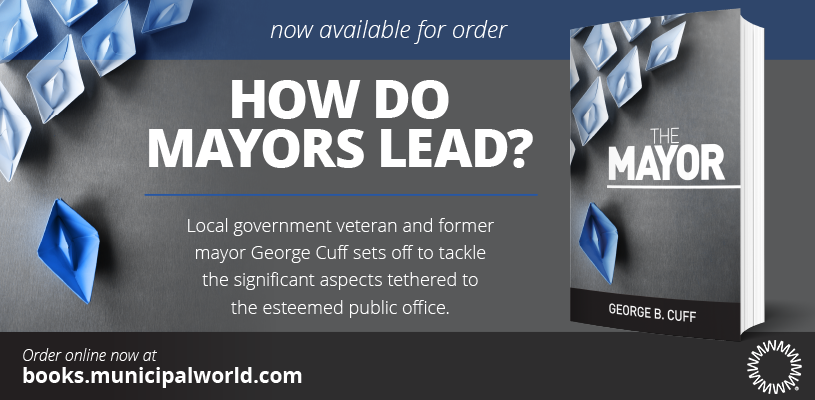On being a CAO in Canada

I have long been concerned with the proposition that not only public servants, but also all citizens, are necessarily “independent moral actors.”
The phrase derives from Harvard political scientist Dennis Thompson, who has promulgated arguments relating to the ethic of neutrality and the ethic of structure.
By the ethic of neutrality, administrators are not to be expected to act on moral principles of their own, or to apply personal values, but to discover what the government intends. Debate is permissible only to the point of policy decision, and thereafter inapplicable and inappropriate. By the ethic of structure, administrators are not, in general terms, to be held morally responsible for government policies and decisions; their personal moral responsibility extends only to the duties within the limits of their own office.
Today’s Realities
Thompson argues that the ethic of neutrality does not reflect the realities of public administration today, in which public servants do develop policy, and in which narrowness of choice is impractical and unsustainable. Thompson further argues that the ethic of structure attempts, wrongly, to disavow the contention that individual actions are part of a collective act.1 Hence, accountability to the state would supersede accountability to the electorate, and individual independence is circumscribed by adherence to the values of the state.
This is contrary to reality, for administrators do not act in isolation of the public implications of their actions, tend not to jeopardize accrued interests (monetary, such as pensions; personal, such as family), acknowledge that the development of democratic policy is fundamentally consensual and incremental in nature (hence, inclusive of opposition), and recognize that moral situations seldom can be simplified.2
I thus agree with Thompson that “personal responsibility must extend beyond role responsibility,” that “[a]ctions and results must count for more in the public arena than motive or intent,” and that “public officials must exercise foresight regarding the outcomes of their actions.”3
Note the distinction between public officials and elected officials.
Quite frankly, however, being a CAO in Canada is now more like a blood sport; or, as one professional recruiter acquaintance of mine says, “the position closest to the door.”
If something doesn’t go right for council, be assured it won’t be their fault. The days of the civil servant are over; servitude still works, but nonpartisan independence has predictable risks. As one of my treasurers astutely observed, “You’re only as good as your last mistake.”
What You Can Really Expect
So, leaving aside all the university teaching about the glories of public administration in Canada, here’s some of what you really can expect.
1. Too many elected officials become pompous, and too many prefer to remain so.
Getting elected is not the same as being elected. Furthermore, most elected officials cannot lead, inspire, or make a decision. Talk for the sake of talk, compulsively prevalent in political arenas, is the enemy of decision and action.
Endless hours of council debate of a meaningless motion merely puts off engaging the real needs of the community that government has responsibility for ensuring; namely, public safety and infrastructure. Almost every politician on the campaign trail promises brevity, decisiveness, and consultation, and almost every politician once in office does exactly the opposite.
Charles Dickens, in Bleak House, describing a case of civic duty, noted that the speaker had “a good deal to say, chiefly in parentheses and without punctuation, but not much to tell.” It is still thus.
2. Truth is inconvenient.
Consultants will tell council whatever it wants to hear, not what it needs to hear. If the firm is engaged directly by council, rather than the administration, the decision has already been made.
3. Power corrupts. Budgets be damned.
Many communities have not taken much care of themselves; and inept governance, often stretching over decades and often by the same individuals, has exacerbated the decline. The consequences include many brownfields, derelict institutional buildings, opportunistic development, and gutting of the downtown.
Community pressures, frequently in the form of narrow interest groups, prevail over any real attention to budgetary responsibility. Moreover, this has become somewhat circular, with the council of the day having been elected partially because of platforms that were based on a catechism of fiscal probity and restraint, and the usual panoply of uninformed vows to get the proverbial house in order.
But disarray, in this scenario, is naturally a consequence of management subordination or insubordination – take your pick on any given day – and not a consequence of a disconnection between community expectation and how elected officials have handled the availability of resources.
Cutting costs, reducing debt, improving accountability, making the hard decisions, all became the catchwords of councillors in the coffee shops.
Inexorably, the first big test arrives at a most unexpected time. Does the town close a facility that is potentially unsafe and well beyond its useful life, or does it throw money at it in a zeal of capitulation to a grouping of insistent voices in the community? I will let knowledgeable readers supply the inevitable answer.
4. Government is not a business.
The bottom line is social capital, not monetary profit. In this regard, a community governed without established goals will go nowhere. If one doesn’t determine the destination, every decision paves a cul-de-sac. Councils who insist change is necessary generally dissemble as ever so polite turncoats. To test this statement, try to change anything deemed to be consequential without a council okay. Councils who want organizational change are generally talking about organizational decimation. Why have costly people on staff when the backhoe can shovel what is necessary into the financial statements?
5. Citizens want a lot for next to nothing.
Citizens want low taxes, clean water, invisible disposal of human waste, good roads, cheap electricity, instant service, and no restrictions on their activities, however inconvenient the latter are to neighbours or the community at large. However, advanced societies are expensive, and debt inevitably invites collapse. Nonetheless, citizens want no government interference, but insist that government take responsibility for everything that goes wrong. For example, sue the government when the water rises in the flood plain.
6. Competence is frequently irrelevant.
Most administrators are competent and committed to good government of the community. This is often at cross purposes with what elected officials seek, as good government does not necessarily purchase votes. Municipal organizations that give staff their head tend to fare better than those who do not. My first mayor said he hired people smarter than him; he was the best mayor I had.
7. Organizational behaviour is often based on insincerity.
Staff want to be loved, but only as long as you’re in charge. And if you don’t love them, they’ll want someone else in charge.
A Different Kind of Team
Motivational speakers often use some variant of “the way you play your games is the way you run your life.” I always thought this was pure bunk. Moreover, teams in the workplace, where the fire chief could care less about taxation software, are a species considerably different than sports teams.
There are few sports in which all or most of the team is playing at the same time and for extended periods of time. Soccer is one. Basketball is perhaps another. Hockey and baseball aren’t; those sports are based on plays. Teams in tennis are never more than two, so that’s more like a relationship. Teams in curling are never more than four, so that’s more like a double date. Swimmers and runners, even in relays, are alone. Golf is solitary. Try auto racing with a group at the wheel.
1 Kenneth Kernaghan and John W. Langford, The Responsible Public Servant (Institute of Public Administration in Canada, 1990), pp. 12-14.
2 Dennis F. Thompson, “The Possibility of Administrative Ethics,” Public Administration Review 45 (1985), pp. 555-561.
3 Ibid.
The comparison of government to sport therefore has some foundation. We know the value of excellence in sports lies in dedication to expertise and discipline, and in the inherent stimulus of competition to excel. By analogy, the value of excellence in government lies in dedication to expertise and discipline – with the inherent stimulus of open debate to heighten service to the community. MW
as published in Municipal World, October 2012
Related resource materials:



